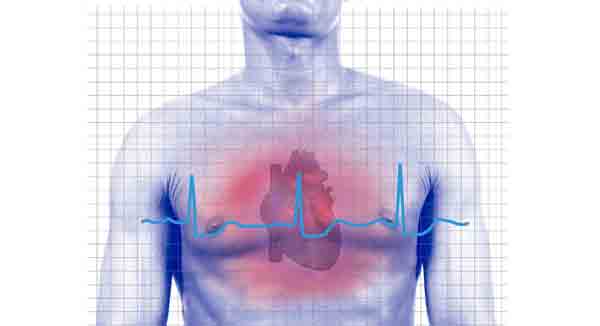For Men, Sex Life Gets Better with Improved Heart Health

Men who change their lifestyle and take heart disease medications also improve their sex lives, a new study says.
In the study, men who acted to reduce their cardiovascular disease risk, including changing their diets and increasing physical activity, saw improvements in their erectile dysfunction (ED ).
Such lifestyle changes even improved ED in men who had taken drugs for the condition but found they hadn't worked, the researchers said.
The study adds to a growing body of evidence that cardiovascular disease and ED are linked. A 2009 study showed that men with erectile dysfunction were 80 percent more likely to develop heart disease than men without ED. Other research shows ED may develop two to five years before coronary artery disease, said study researcher Dr. Stephen Kopecky, a professor of medicine at the May Clinic in Rochester, Minn.
The findings may provide a new motivation for men to improve their health habits, Kopecky said. "When we talk to patients about heart disease, sometimes their eyes kind of glaze over," Kopecky said. Some patients say their friends have had heart attacks and are doing just fine. "We've almost done too good of a job in treating heart attacks, and people aren't concerned," Kopecky said. Informing them about erectile dysfunction or stroke risk might make a difference, he added.
"We don't want to scare them, but we do want them to be motivated to change lifestyle," Kopecky said.
ED and heart disease
Sign up for the Live Science daily newsletter now
Get the world’s most fascinating discoveries delivered straight to your inbox.
Kopecky and his colleagues reviewed six previous clinical trials from four countries involving a total of 740 patients. In each study, participants were randomly assigned to a particular lifestyle change (such as exercise) or drug (including statins) to reduce their cardiovascular disease risk , or they were assigned a placebo. Sexual function was assessed using a questionnaire. Scores on the questionnaire range from 5 to 25, with scores lower than 7 indicating severe ED, and scores from 22 to 25 indicating normal erectile function.
On average, men who improved their cardiovascular health had a 2.7-point increase in sexual function score, the researchers said. Making only lifestyle changes increased the score 2.4 points, and drugs alone increased the score 3.1 points.
A change in sexual function score of 2 or 3 points is more likely to make a difference for men with mild ED, than for those with severe or moderate erectile dysfunction, the researchers said.
Increased physical activity may improve ED because it improves the health of blood vessels .
"We're talking about a blood flow problem," Kopecky said. Decreased blood flow to the heart can cause a heart attack, and decreased blood flow to the brain may cause a stroke. Reduce blood flow to the penis may cause ED.
"If you can do anything to help blood flow," you reduce the chances of a heart attack, stroke or ED, Kopecky said.
Spouses can help
Often men don't tell anyone about heart disease symptoms they experience, including chest pain or shortness of breath, Kopecky said. But erectile dysfunction might be a different situation.
"It's hard for the man to hide erectile dysfunction from his wife," Kopecky said.
A man's spouse or partner may motivate him to seek attention for ED, as it could be a sign of other problems, including heart disease.
The study is published in the Sept. 12 issue of Archives of Internal Medicine.
Pass it on: Improving cardiovascular disease risk factors may improve erectile dysfunction.
- 7 Surprising Reasons for Erectile Dysfunction
- Men's Sex Problems Go Beyond Erectile Dysfunction
- Unhealthy Habits Wreck Your Sex Life
Follow MyHealthNewsDaily staff writer Rachael Rettner on Twitter @RachaelRettner. Like us on Facebook.

Rachael is a Live Science contributor, and was a former channel editor and senior writer for Live Science between 2010 and 2022. She has a master's degree in journalism from New York University's Science, Health and Environmental Reporting Program. She also holds a B.S. in molecular biology and an M.S. in biology from the University of California, San Diego. Her work has appeared in Scienceline, The Washington Post and Scientific American.









